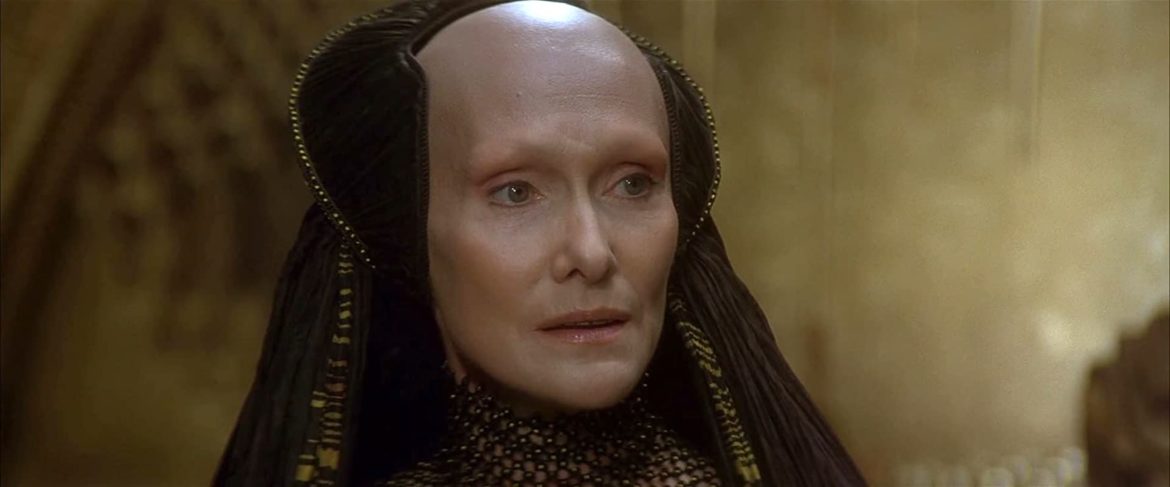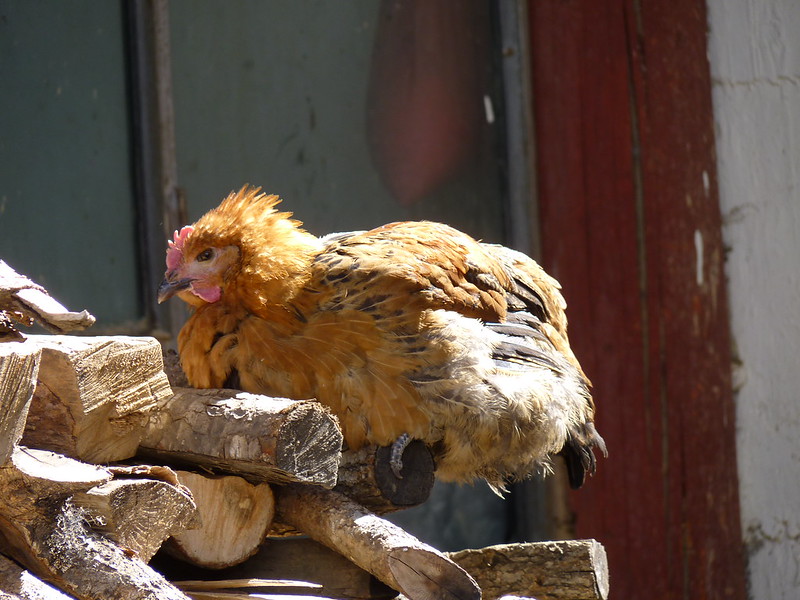
TWH – New research published earlier this year sheds some insight into genetic memory, albeit in chickens.
Some Pagan traditions involve ancestor veneration while others go a step further trying to access ancestral intents that might be housed in human memory. Several African traditions, for example, attribute the forgetting of an ancestor’s wishes as a cause of current misfortune.
Frank Herbert famously borrowed these beliefs with the creation of the Bene Gesserit, a sisterhood in the fictional universe of Dune who expand their physical and psychological discipline to achieve supernatural feats. One of these feats, “Other Memory” is the ability to access the genetic memory of their lineage so the plans and strategies of previous generations can be continued down line.

Siân Phillips as Reverend Mother Gaius Helen Mohiam in Dune (1984) [via IMDB]
Herbert devised the idea by borrowing from Carl Gustav Jung, the Swiss psychiatrist who contributed to numerous fields including religious studies, and created the psychotherapeutic technique called analytical psychology.
Jung hypothesized the existence of a collective unconscious, a group unconscious mind that is shared among beings of the same species. The collective unconscious houses archetypal and universal symbols that carry meaning but require no specific learning. The idea of a “Great Mother,” a “Tree of life,” and or “Destroyed Tower,” was imagery and information that flowed from the collective unconscious.
In his own words, Jung wrote “these ‘primordial images,’ or ‘archetypes,’ as I have called them, belong to the basic stock of the unconscious psyche and cannot be explained as personal acquisitions. Together they make up that psychic stratum which has been called the collective unconscious.” (from “The Significance of Constitution and Heredity in Psychology,” 1929).
Other scientists have suggested that genetic memory is a mechanism present in savants. Abraham Arden (A.A.) Brill (1939) quoted another investigator, Dr. William Carpenter from century earlier who observed among savants,
In each of the foregoing cases, then, we have a peculiar example of the possession of an extraordinary congenital aptitude for certain mental activity, which showed itself at so early a period as to exclude the notion that it could have been acquired by the experience of the individual. To such congenital gifts we give the name of intuitions: it can scarcely be questioned that like the instincts of the lower animals, they are the expressions of constitutional tendencies embodied in the organism of the individuals who manifest them.
Jung’s hypothesis was empirical in nature; but scientific evidence of a collective unconscious has been lacking, at least in the specific form that Jung described. In our current understanding, human knowledge is conveyed through learning.
However, research into genetic memory has resulted in some surprising findings.
Like the Bene Gesserit’s Other Memory, the basic assertion is that knowledge can persist across generations in a manner that helps future generations succeed. Such an assertion violates our understanding of evolution which asserts that organisms with the best genetic characteristics to survive an environment are the most like to pass on their advantages to their offspring. The process will slowly create new species more perfectly attuned to their specific environments.
Genetic memory short-circuits that evolutionary process by forwarding ancestral knowledge on how to succeed in prior environments to present-day organisms.
A few years ago, a viral video about the “genetic memory” of honey misled viewers about the phenomenon. The video alleged that diluted and real honey make different patterns when mixed with water awakening its memory. That’s not what genetic memory is nor how it works.
A recent study from the University of Michigan published in Science Advances extends previous findings and looks at how genetic memory may function as an echo of past environments. To explore the question the researchers looked at Tibetan chickens.
Chickens were domesticated about 4,500 years ago in southeast Asia. They were domesticated from jungle fowl that lived roughly at sea level. The domesticated chickens were then brought onto the Tibetan Plateau at an altitude of about 11,000 feet (3,353 meters) about 1,200 years ago.
The Tibetan chickens adapted to their new environment by having more red blood cells and higher oxygen efficiency. However, there are no genetic differences between the chickens. The adaptation would have to be “plastic,” meaning no re-writing of the genetic code.

Tibetan Chicken [via Flickr]
In the experiment, the researchers took eggs from lowland chickens and hatched them on the Tibetan Plateau and vice versa, hatching eggs from Tibetan chickens at lower altitudes. The researchers wanted to see how chickens re-adapted to their ancestral homelands.
When lowland eggs were incubated on the Tibetan Plateau, a significantly lower number of them hatched. But the effect was not observed when Tibetan chicken eggs were returned to their ancestral homelands. The eggs hatched with no significant difference whether they were Tibetan or lowland.
The results suggest that plastic resources carried the information, not the genes themselves because there were no genetic differences between the chickens. The changes seem to have been conveyed in the way RNA was transcribed from the chickens’ DNA. And while many adaptations and mutations were required to survive on the Plateau, the Tibetan eggs re-adapted or “remembered” their lowland environment.
The results are consistent with other research findings on guppies and bacteria. Similar echoes have now been observed in bats and may explain how they are able to cope with and survive with deadly viruses.
This is not quite the same memory that Jung described, but the research does hint at a form of “memory” conveyed over generations. In 2017, research published in Science found that nematode worms that experienced high temperatures activated certain “junk” genes that were then passed over 14 generations. The authors noted that “Long-lasting epigenetic memory of environmental change is therefore possible in this animal.”
Similar findings on stressed coral were reported earlier this year. The scientists in that study demonstrated that coral species pass on information that increases the survivability of their offspring.
While no research has supported the presence of genetic memory in humans, the animal research does suggest that a mechanism exists conveying, at least, past stressors or experiences to progeny.
The Wild Hunt is not responsible for links to external content.
To join a conversation on this post:
Visit our The Wild Hunt subreddit! Point your favorite browser to https://www.reddit.com/r/The_Wild_Hunt_News/, then click “JOIN”. Make sure to click the bell, too, to be notified of new articles posted to our subreddit.
